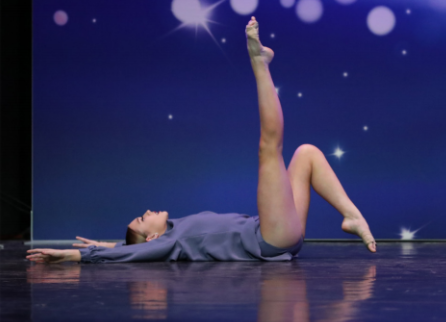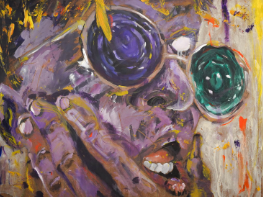Dancing between the line of hard work and unhealthy criticism

PHOTO COURTESY OF MEGHAN GARRITY
Sophomore Meghan Garrity dancing at the Headliners Dance competition in Lawrence Township, NJ in March of 2019.
March 12, 2021
A dancer’s job from rehearsals to the stage is to look effortless, but in reality, it’s not all that easy.
The dance industry is known for having extremely high standards. Dancers will often feel the need to push themselves in order to get in the best physical shape possible to obtain the “ballerina body.”
In an article for the Dance Informa Magazine USA, “Dance and Mental Health,” writer Rebecca Martin explained that dance isn’t just physically demanding, but takes a toll on mental health. She describes how easy it can be for dancers to criticize themselves, and others, while they spend long hours of the day in front of floor-to-ceiling mirrors.
Junior Francesca Santaniello of Tinton Falls shared that as a dancer, she is always striving for perfection, whether that be on stage or at a competition, and sometimes it gets the best of her.
“Personally, this can be really hard for me because it makes me feel like my best isn’t good enough,” Santaniello said.
The art form is based around the appearance of choreographed movement, so it can be easy for dancers to get overwhelmed by the need to look flawless.
With the competitive nature of the dance world, the idea of dancing for fun can be easy to forget.
“It can be really hard to feel disappointed after a performance and to be upset with yourself, and it’s really easy to put pressure on yourself to be perfect and it shouldn’t,” Santaniello said.
Although dance has changed much throughout the years by normalizing male dancers and creating safe spaces for new dancers to choreograph, the stress on body image has remained. Dr. Michael Carr-Gregg, one of Australia’s highest-profile psychologists, believes this fact is too important to ignore and looks into the situation.
“You cannot change what you don’t acknowledge. We must educate people that it is OK to talk about [dancer’s mental health],” Dr. Carr-Gregg said in a roundtable discussion about raising awareness.
Sophomore Meghan Garrity of Lincroft has been dancing since the age of six. Garrity has frequently experienced this pressure throughout the years from dancing. However, she can also remember that dance is something that she loves.
“My body image has always suffered from the constant comparisons to others and being surrounded by mirrors my whole life,” Garrity said. “But dance has always been a joy in my life and it’s a time for me to let go of everything that has happened that day, being on stage is such a reward.”













